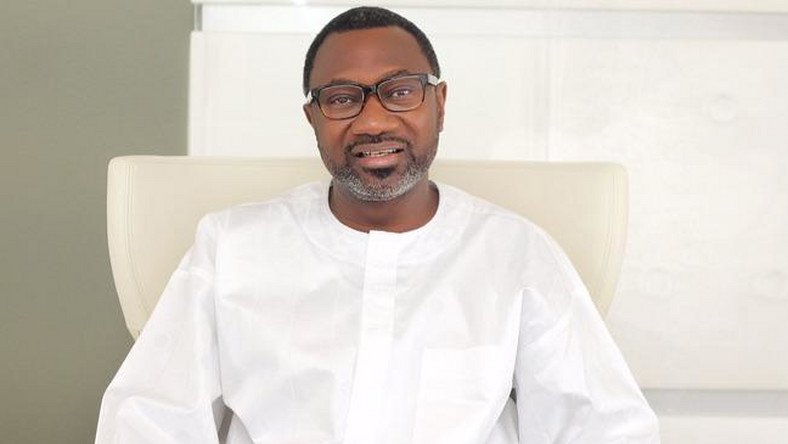The Chairman of FBN Holdings and acclaimed strongman of the financial and capital markets, Femi Otedola has thrown his weight behind the implementation of a windfall tax, emphasizing its importance in creating a more equitable economic environment.
The billionaire also called on banks to halt extravagant spending on private jets, urging a focus on operational efficiency and customer service.
In a statement released to the press, Otedola highlighted the need for reforms in the Nigerian banking sector to enhance economic stability and integrity.
“Windfall taxes, which are levies on companies or individuals who receive substantial, unexpected profits, ensure a fairer distribution of wealth,” he said. “This allows those who benefit disproportionately to contribute more significantly to the broader societal good.”
The windfall tax, initially proposed by President Bola Tinubu at 50% on bank profits, was increased to 70% by the Senate and passed into law. This tax will be in effect from 2023 to 2025.
The revenue from windfall taxes could be directed toward essential public services such as healthcare, education, and infrastructure. This would benefit all citizens and help reduce social inequalities.
The recent announcement of a windfall tax on the extraordinary profits earned by Nigerian banks, due to the consolidation of various foreign exchange rate systems, marks a significant step in this direction.
“The depreciation of the Naira and the increase in the value of bank assets denominated in U.S. dollars led to extraordinary gains. These should be redistributed to fund critical infrastructure development, education, healthcare access, and public welfare initiatives,” Otedola added. This approach would address the intense pressure on public finances and alleviate the cost-of-living crisis faced by many Nigerians.
Otedola also noted the financial struggles of the manufacturing, telecoms, and SME sectors, many of which are showing negative equity and may not be able to pay corporate tax for the next two years.
“It is essential for the government to step in and provide support to bridge these gaps, ensuring revenue generation and fostering economic development,” he stated.
Praising the Federal Government’s reforms, Otedola emphasized their importance for sustainable economic growth.
“By taking decisive action to implement these changes, the Federal Government is demonstrating a commitment to ethical leadership and accountability. These reforms will empower our banking sector to drive Nigeria’s economic development, securing a prosperous future for all Nigerians,” he said.
He also commended the recent recapitalization initiative in the banking sector, which sets minimum capital requirements of N500 billion for international banks and N200 billion for national banks.
This move, Otedola noted, is designed to strengthen the banking sector’s capacity to support Nigeria’s broader economic development goals.
However, Otedola expressed concern over the culture of extravagance among some bank executives.
“Nigerian banks are spending an estimated $50 million annually on maintaining private jets, with over $500 million spent on purchasing nine private jets by four banks. This level of extravagance significantly erodes public trust in our financial institutions,” he said.
He called for banks to realign their financial priorities, focusing on operational efficiency, technological innovation, and customer service.
“To regain the trust of the Nigerian public and fulfil its pivotal role in the nation’s economic development, the banking sector must invest in areas that directly improve customer services and enhance technological infrastructure,” Otedola urged.
Otedola called on all stakeholders in the Nigerian banking sector and the broader economic community to support these reforms.
“It is time for our financial institutions to embody the highest standards of integrity and service, ensuring a stronger and more resilient economy for all Nigerians,” he said. (Nairametrics)


